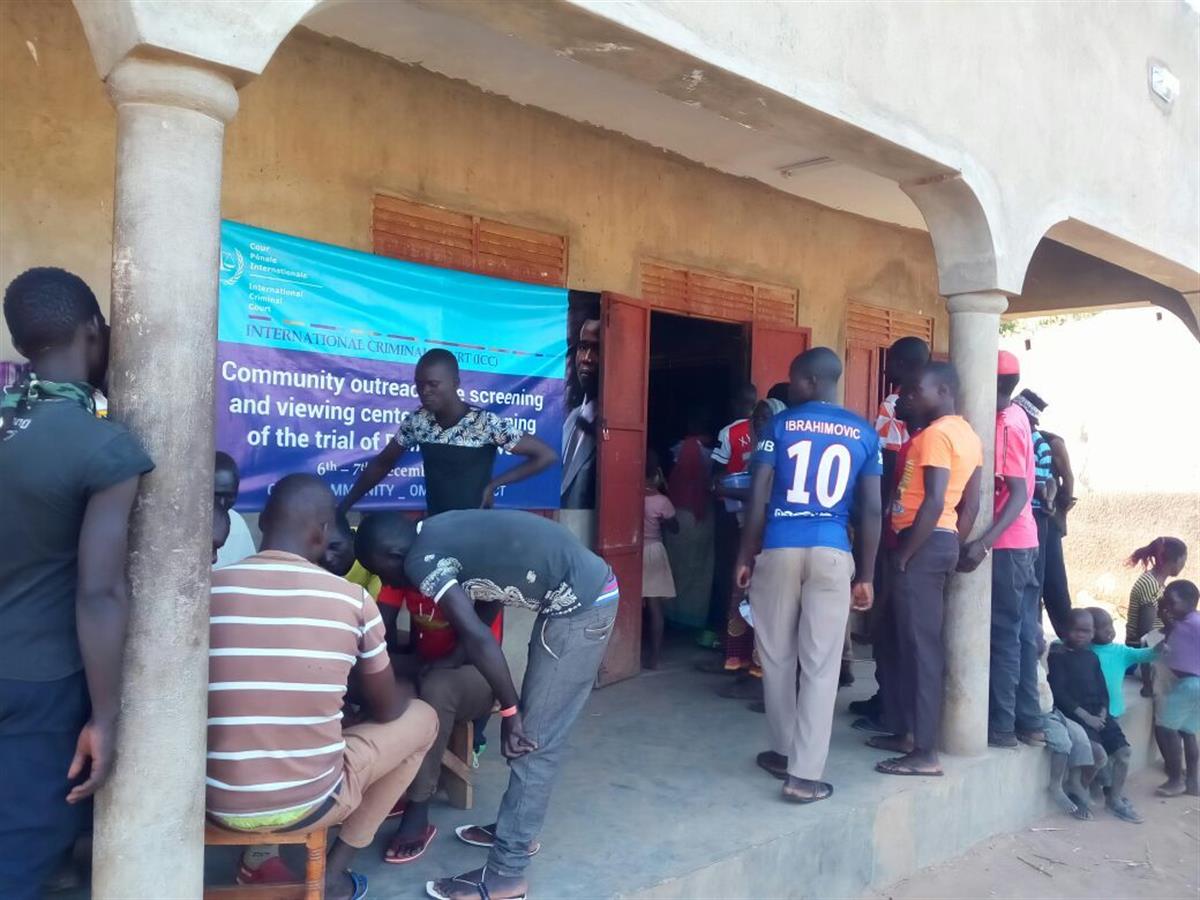
Northern Ugandans watch the ICC Ongwen trial at Outreach screening centres. Many report relief that the wheels of justice are turning and are telling ICC staff why the trial matters to them.
As the trial of Dominic Ongwen continues at the ICC, communities affected by the crimes alleged in this case are following the proceedings carefully. Many are telling ICC staff why the court case is so profound, for both their past and future.
In one person's words, the trial screening "is the writing of history; the writing of history about us, and it is very important that this history is being written during our lifetimes! Tomorrow we shall become the reference points for these stories, and we must teach our future generations with what is happening in front of us today. It therefore requires that we follow this screening earnestly…and I would like to thank the ICC for bringing us this."


There is a sense that the horrible atrocities are being acknowledged, that the communities members' stories are part of the justice process, and that it is possible, with these stories of the past, to start to look ahead. "To be healed," another community member stated, "justice has to be done."
The ICC is present in Northern Uganda, ensuring communities have access to the hearings at screening stations. A number of victims are also participating in the case through their lawyer in The Hague. Called "victims' participation", this legal representation ensures that victims' voices are heard in the Courtroom.
Trials can represent a healing moment. An impartial, independent and fair trial allows for a verified account of what happened and that would be passed on to future generations. Children would grow with the belief that no one should be above justice, not even those most powerful and who are suspected of being responsible for the world's worst crimes.